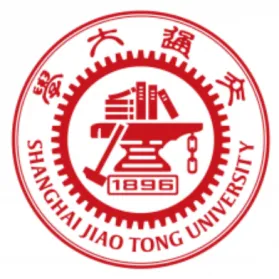An MBA provides a winning combination of fundamental business knowledge, technical skills, and influential connections that can open up a wide range of career opportunities.
For many people this means taking the next step up the ladder into a management role. For others, it’s the chance to embark on a different path in an entirely new industry.
Ching Ching Lee, Su Kai, and Alexander Petersen both switched careers after studying their MBAs at Shanghai Jiao Tong University Antai Business School, one of China’s top-five ranked MBAs.
BusinessBecause caught up with the three Antai alumni to find out how studying their MBAs in China helped them take the next step in their careers.
Develop a holistic skillset
With experience focused on highly technical work in scrum management and engineering, Malaysia-born Ching Ching enrolled in the Antai MBA to develop a more well-rounded business acumen.
She’d recently joined Wistron, a Chinese-based anticounterfeit technology startup, as an operations manager, but she wanted to change roles and felt she needed to enhance her finance and managerial expertise.
“I wanted to switch to product management because I’m passionate about building great products and software for users to help make their lives better,” she explains. “The MBA was part of the plan to help me switch careers.”
The Antai MBA curriculum is highly rigorous, demanding a lot from students. For Su Kai, a former software engineer who enrolled in the Antai MBA to progress beyond his previously specialized career path, the intensity was almost too much.
But Su Kai decided the program's difficulty meant only a select few students would be able to complete it and this would have a large impact on his career: "When a thing is scarce, it is precious," he says.
The program combines an array of fundamental business topics with elective modules and specialization tracks. This allows students the opportunity to tailor their studies towards their chosen career path. There are also several classes that focus on developing your communication and interpersonal skills.
Ching Ching enjoyed enhancing her understanding of key areas such as corporate finance, marketing, and management, while also deep diving into specialist subjects including artificial intelligence (AI).
The combination of topics on offer gave Ching Ching new confidence in her business acumen: “The whole MBA program was quite holistic, so that helped me to acquire not only hardcore business and management knowledge but also the soft skills.”
Gain an insight into Chinese culture
Danish-native, Alexander, spent a number of years in Shanghai leading the Chinese office of Egiss, a small Danish IT company, before deciding to take on a new challenge.
As managing director, he’d navigated the Egiss in China into a healthy position and felt it was the right time to take the next step in his career with an MBA.
“I wanted to build on what I knew and understand a bit more about the business side,” he explains.
He chose Jiao Tong for his MBA as a top business school located in Shanghai. But, not satisfied with studying the school’s international MBA program, he decided to fully immerse himself in the local culture by studying in Chinese.
“You have to be ambitious if you go out to China, so I wanted to see how well I could make the best version of myself.”
The decision meant Alexander gained in-depth exposure to the local culture. He studied with Chinese locals and undertook a number of modules teaching business from a Chinese perspective.
“As a foreigner, I got a much deeper understanding of China and their way of thinking,” he adds.
Ching Ching also decided to delve deeper into Chinese business teaching during her MBA, tailoring her elective modules to better position herself working within a Chinese company.
“It was really broad with the elective courses that you could choose. Some topics went into Chinese culture so I enrolled in them because I think, as a manager, it’s not only the hard skills that are important, it’s also about how you develop as a person.”
Leverage a network to launch a new career
Since graduating from the program, Su Kai, Ching Ching, and Alexander have gone on to make exciting shifts in their careers.
Alexander has channeled his newfound business expertise into entrepreneurship. During his MBA, he launched a beverage startup alongside a connection from the program. Today, ‘LAIBA Beverages’ is China’s first handcrafted bottled cocktail brand and its success has earned Alexander a place on the Forbes 30 under 30 list.
Su Kai left his career in software engineering to take on a consultancy role with IBM. After securing several promotions at the company he then moved into the C-suite, landing CEO roles with San Fu Fashion and then Golden Eagle Group, a publicly listed firm. Today, he is a partner at Seqouia Capital, a leader in venture capital.
For Ching Ching, the Antai MBA provided the confidence to switch to her desired role before she’d even graduated. Taking advantage of the flexible nature of startup life at Wistron, she pitched herself as a new product manager for the company and impressed her boss with the proposal.
Reflecting on their success, both Alexander and Ching Ching feel the well-rounded business acumen they developed on the program has been key. However equally important are the relationships they struck while studying.
Alexander has used his connections to take LAIBA Beverages global, with the company now operating in stores across the UK and Singapore: “Doing an MBA puts you in a position where you’re surrounded by people who can help you,” he explains.
For Ching Ching, the MBA network has helped her navigate her new management role by leaning on the expertise of other product managers she studied with in the Antai MBA cohort.
“We have many people in the class and they all come from different backgrounds. We have product managers and also people who are very technical,” she says. “I’ve been able to reach out to all of them to be educated and get some advice.”
This is a sponsored article, paid for by the featured business school(s).
Image: ©hxdbzxy/iStock



